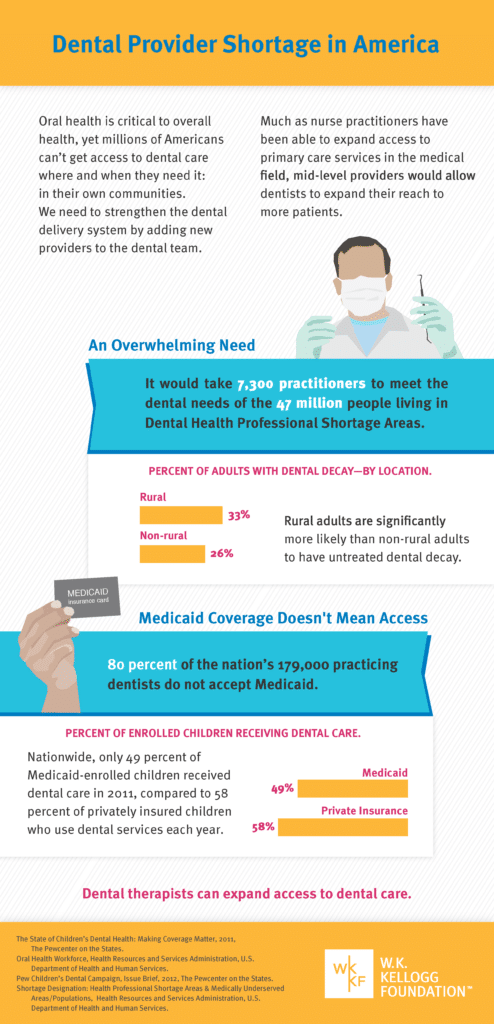 AYWAN88/E+
AYWAN88/E+
Kellogg Foundation Launches Online Resource for Dental Therapy
As the need for greater access to oral health care continues to increase in low-income and rural communities across the United States, so has the demand for states to recognize the role dental therapists play on an oral health care team.
As the need for greater access to oral health care continues to increase in low-income and rural communities across the United States, so has the demand for states to recognize the role dental therapists play on an oral health care team. The W.K. Kellogg Foundation, Battle Creek, Michigan, has launched a new online resource highlighting how dental therapists provide education and routine preventive and restorative care to low-income communities to effectively help close the gaps in access to quality dental care.
Dental therapists are currently practicing in Alaska, Minnesota, Oregon, and Washington in the US. More tribes and states are considering how dental therapists can provide greater access to dental care in more communities, according to the foundation. However, misconceptions about dental therapy persist, including a belief that dental therapists provide a lower standard of care or are ineffective.
To help inform policymakers, decision makers, and the public about the impact dental therapists have on increasing access to care, the new online hub provides access to documents, infographics, podcasts, articles, and videos from organizations and experts on the ways in which dental therapists improve the overall oral health in the communities where they practice.

Caroline Brunton, program officer with the W.K. Kellogg Foundation, notes there have been no adverse outcomes reported from seeing a dental therapist in the US. Rather, studies show that dental therapists provide safe, competent, and appropriate care including cleanings, fillings, and simple extractions under the general supervision of a dentist.
Another study demonstrates that dental therapists’ work is effective as communities served by dental therapists have tangibly better oral health. According to the foundation, about 50 million people in the US are unable to receive dental care where they live. This is where dental therapists come into play. By working in rural and underserved communities, they increase access to care for individuals with limited access to professional dental services. They can consult with a supervising dentist via telemedicine or phone, and provide regular services that patients need in order to avoid more serious dental problems in the future.
“Kids in the communities served by dental therapists have had fewer extractions and other complicated procedures,” says Brunton. “In places where students were once graduating high school with full sets of dentures, kids and families are now practicing preventive behaviors such as brushing, flossing, and going to routine oral health visits.”
Brunton explains dental therapists also bring new capacity and flexibility to the dental care team as these highly trained professionals provide routine and preventive services for patients—leaving the dentist free to attend to the most complicated cases. Dental therapists provide prophylaxes, restorative care, and simple extractions under the general supervision of a dentist through community clinics, mobile dental clinics, school-based health clinics, tribal clinics, and private practice.
And states are noticing the impact these oral health professionals have on their communities. Alaska is a dental therapist model success story, where today more than 45,000 children are receiving regular dental care, where they live, when they need it. “The dental therapy movement has reached a tipping point, in terms of support,” says Brunton. “More people than ever—funders, advocates, and community group—are interested in dental therapy as a strategy to improve access to oral health care.”
Access the dental therapy hub at: http://dentaltherapyresourceguide.wkkf.org/

